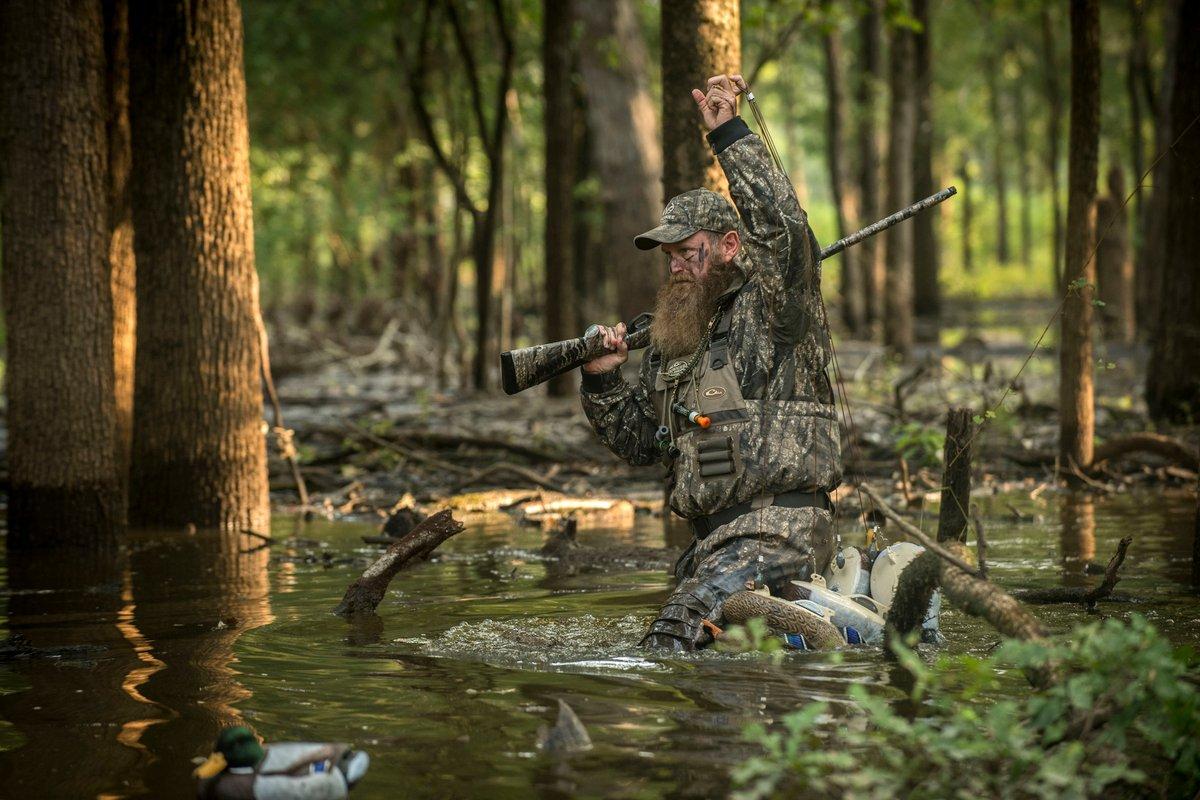Understanding and adjusting for competition can put more birds on your strap
Every waterfowler knows that guy — the dude with access to a prime private spot, where he always works unpressured birds and never worries about other hunters.
But most of us aren't that guy. In fact, many trips to the marsh — whether it's public water, a management area, an ag field or even a club — involve dealing with competition. Heck, even the duck pros face that many days. Here's how they deal with the pressure problem.
Justin Martin, General Manager, Duck Commander
Competition is always a fun thing in duck hunting to me, Martin said. Sometimes, it can be very frustrating, though, if we all aren't playing the same game. What I mean by that is folks taking shots that are a little high or on swings rather than letting the guys that are working the ducks shoot them.
When hunting timber, Martin typically uses one of two different strategies.
If the competition around me doesn't sound like real ducks, I will just stand on my calling prowess and get very aggressive on calling in general, he said. I hate having to do this because I don't like blowing my guts out to have to kill ducks. It is not my day-in, day-out style at all. In fact, most folks I hunt with will tell you I am minimalist when it comes to calling. I prefer to let ducks do what they want to do on their own and just steer them to me. But ducks respond better to guys that sound like real ducks. So when that's the case, my volume and amount of calling both go up. I will get really aggressive on feed calls and jerk rigs and just cause a ruckus, so to speak.
If Martin's competition sounds realistic, he goes with a more natural approach.
I will reduce my decoys to only moving decoys and set them in the middle of the hole so that the ducks above can easily see them, he said. I will most likely just do soft feed calls and single quacks.
When hunting fields, the game changes, and Martin goes all out.
I will take every decoy I own (which is a lot) and set out a mega-spread with lots of movement (spinners, splashers, jerk rigs, ripplers — you name it)," he said. "I want it to be like Studio 54 used to be in New York. I want it to be a party.
Jeremy Dersham, Ridge and River Running Outfitters
Dersham, who guides on the popular Pool 9 of the Mississippi River and in hunter-rich southern Wisconsin, uses a common-sense attitude when facing competition.
A great rule to remember is something we all learned in kindergarten: Treat others like you want to be treated, he said. That's to say, if someone has a spot you wanted to hunt, don't be that guy cursing under your breath and screaming something sarcastic or derogatory. Instead, try to have four to six spots marked for the type of conditions you're hunting that day.
Often, Dersham uses hunting pressure to his advantage.
For example, there are certain spots and areas that get hit hard on Pool 9, along with other rivers and public marshes I hunt, he said. Knowing that, and watching the birds' behavior after being shot at, you can start to see different flight lines the birds start taking. I try to then set up in areas that are flight lines birds will take to avoid a gauntlet of gunfire. If I know a certain area is going to get smoked with hunters on a particular day, I'll be looking for smaller water or at times a different location for birds. I'm scouting every moment I can to not only find ducks but to find out what they do when they are pressured. I'm not going to let hunting pressure stop me from hunting. Rather, I'm going to try to look for an advantage, if possible.
When dealing with pressure on leases or at duck clubs, personalities and social factors come into play.
If you lease ground with a few other people and your expectations are different from those of other people, coupled with a loose policy form for the club, you may end up wanting to quit duck hunting, take karate and possibly enroll in a kick-boxing class, Dersham said jokingly. There's nothing worse than having premium duck ground you've leased and worked hard to set up, only to run into other hunters. You just took a day off to hunt your favorite hole only to find your buddy's cousin or stepsister's nephew with five of his buddies in your blind, using your gear, with lanyards full of ducks. He looks at you and states, 'So-and-so said I could hunt today, tomorrow and maybe the next weekend. Is that OK?' This is again the time to remember the golden rules you learned in kindergarten. Another rule to learn is the creation of rules and policies for any lease and club and the consequences of not following those policies. You're not going to see eye to eye with everyone, but you can keep a calm head and make the most out of a bad situation.
Ultimately, Dersham said, most waterfowlers must deal with competing hunters. Scouting and a level head will help win the day.
Your past scouting will assist greatly with this, along with your people skills, he said. We all want to enjoy a day chasing these winged creatures.
Click here for more Realtree waterfowl hunting content. And check us out on Facebook.







